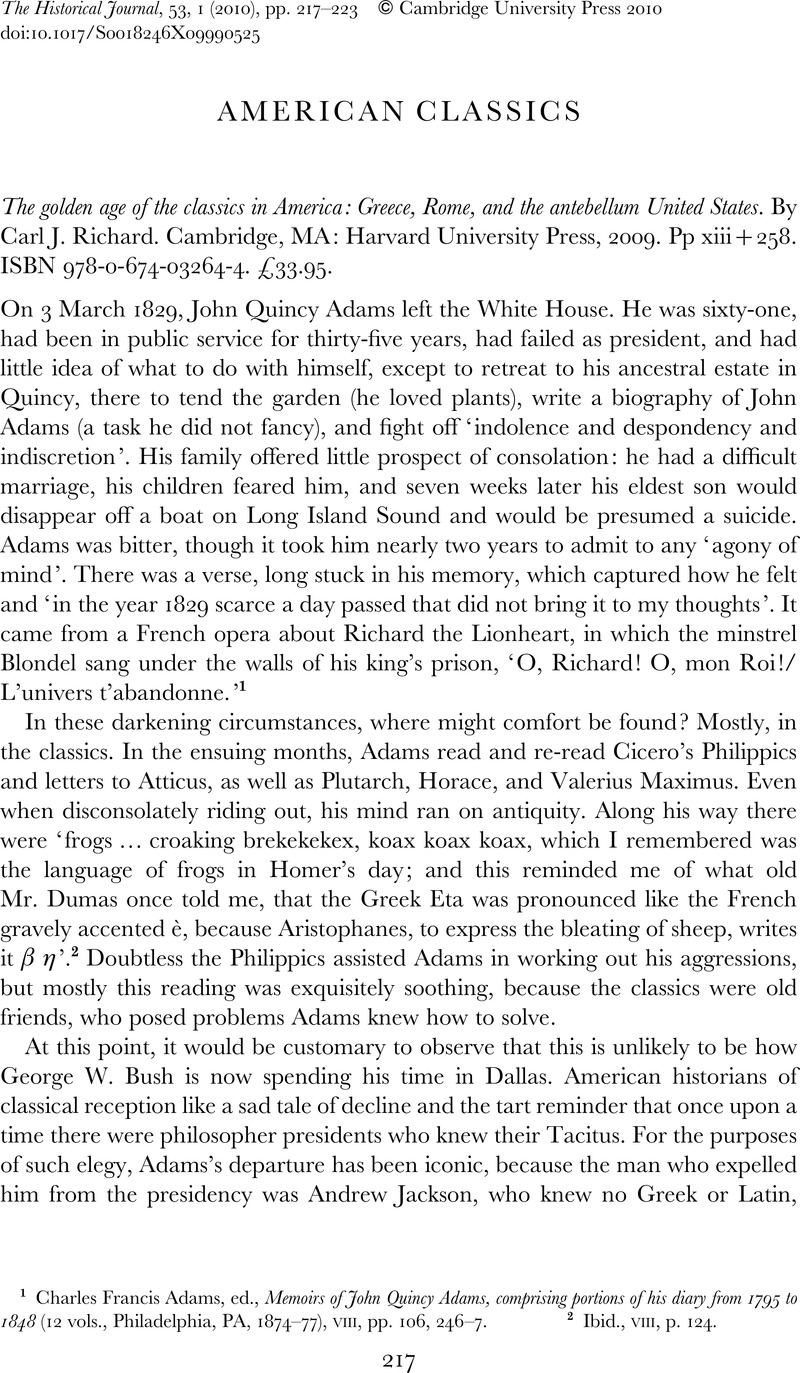No CrossRef data available.
Published online by Cambridge University Press: 29 January 2010

1 Charles Francis Adams, ed., Memoirs of John Quincy Adams, comprising portions of his diary from 1795 to 1848 (12 vols., Philadelphia, PA, 1874–77), viii, pp. 106, 246–7.
2 Ibid., viii, p. 124.
3 On this, see Margaret Malamud, Ancient Rome and modern America (Oxford, 2009).
4 Allan Bloom, The closing of the American mind: how higher education has failed democracy and impoverished the souls of today's students (New York, NY, 1987), pp. 381, 382; Lawrence W. Levine, The opening of the American mind: canons, culture, and history (Boston, MA, 1996), p. 53.
5 Richard, Golden age, pp. xiii, xii; Meyer Reinhold, ed., The classick pages: classical reading of eighteenth-century Americans (University Park, PA, 1975), p. viii.
6 Henry Adams, Mont-Saint-Michel and Chartres (Boston, MA, 1913), p. 382; Henry Adams, The education of Henry Adams: an autobiography (Boston, MA, 1918), p. 5.
7 Richard, Golden age, p. 206.
8 John F. Kasson, Civilizing the machine: technology and republican values in America, 1776–1900 (Harmondsworth, 1977), p. 151.
9 See www.guardian.co.uk/commentisfree/2009/may/20/plato-philosophy-capitalism-economic-crisis (accessed 30 June 2009).
10 Andrew Delbanco, Melville: his world and work (London, 2005), p. 116.
11 Reports on the course of instruction in Yale College; by a committee of the Corporation, and the Academical Faculty (New Haven, CT, 1828), pp. 45–6.
12 Thomas Smith Grimké, Reflections on the character and objects of all science and literature (New Haven, CT, 1831), pp. iv–v.
13 Hugh Swinton Legaré, ‘Classical learning’, Southern Review, 1 (1828), p. 3.
14 Carl Sandburg, Abraham Lincoln: the war years (2 vols., New York, NY, 1959), i, p. 413; Garry Wills, Lincoln at Gettysburg: the words that remade America (New York, NY, 1992), p. 55.
15 Kenneth Cmiel, Democratic eloquence: the fight over popular speech in nineteenth-century America (New York, NY, 1990), p. 116; Address of the Hon. Edward Everett at the consecration of the National Cemetery at Gettysburg, 19th November, 1863 (Boston, MA, 1864), p. 29.
16 Online at www1.bartleby.com/124/pres26.html (accessed 30 June 2009).
17 Adams, Memoirs of JQA, vii, p. 138; Edward Everett, An oration delivered at Cambridge on the fiftieth anniversary of the declaration of independence of the United States of America (Boston, MA. 1826), p. 47.